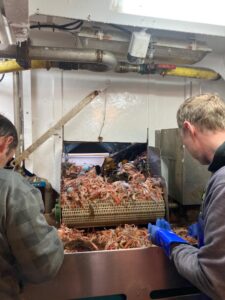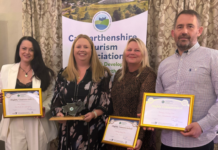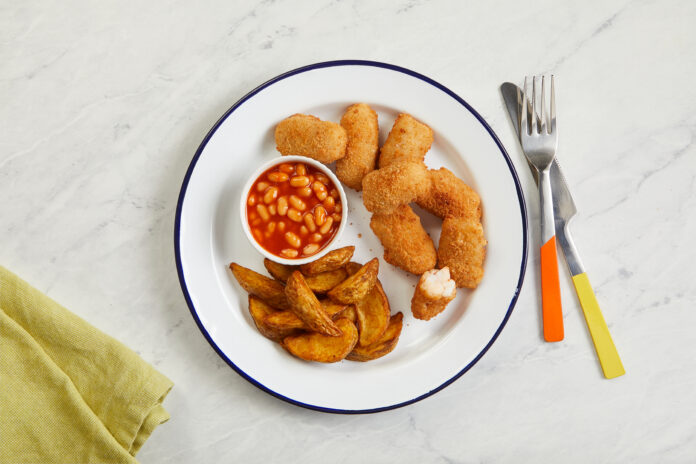
Seafish is highlighting the positive work being done to ensure scampi is sourced sustainably.
Claims that Nephrops fisheries are environmentally damaging ‘misleading’
Seafish, the public body that supports the UK seafood industry, has responded to recent media reports suggesting that consumers should avoid scampi because the Nephrops fishery upon which it relies causes environmental damage.
The reports allege that the fishery causes significant damage to the seabed, has a negative impact on other species and that bycatch levels are too high.
But Seafish says the issues are far more complex than have been portrayed and is now highlighting the efforts made across government, science and industry to ensure the Nephrops fishery is sustainable now and in the future.
The Nephrops fishery is critical to the United Kingdom, with nearly 59% of the global catch occurring in UK waters in 2021.

There are two fishing methods used to catch Nephrops – creels are used to catch and land live Nephrops, usually destined for high value export markets, and trawl nets are used to catch the larger volumes of Nephrops usually used in scampi production.
Aoife Martin, Seafish Director of Operations, said: “Recent media coverage suggests that consumers should avoid scampi because the fishery causes environmental damage.
“This is an extreme view; the reality is much more nuanced and reflects a fishery where government, scientists, and the fishing industry work collaboratively to improve the management of the fishery and to ensure its long-term sustainability.
“Suggestions that the Nephrops fishery is unsustainable because of the levels of bycatch associated with the fishery are incorrect.
“Nephrops are usually caught as part of a mixed fishery – fisheries where you catch more than one species at a time. Nephrops are an important and valuable part of the catch, but so are other species such as whiting, haddock and cod. Together these key commercial species can account for over 80% of the catch.
“To label these other species as bycatch is not correct. These are important species that are usually retained because they are commercially valuable. Fishermen will hold quota for these species, and they represent a key part of their fishing income.”
Given the importance of the Nephrops fishery to the UK, regular research is carried out by The International Council for the Exploration of the Sea on the state and health of the stock.
Seafish does acknowledge that unfortunately, endangered, threatened and protected species can occasionally get caught in fishing gear with fishermen required by law to report any capture or entanglement of any marine mammal in their equipment.
Work is ongoing to better manage this problem, with a focus on increasing monitoring to improve the understanding of the scale and impact of marine animal entanglements, and to explore options to avoid this happening.
“Targeting and criticising the sale of scampi by retailers, pubs and restaurants is likely to create many more problems than it will ever solve,” added Ms Martin.
“We know that scampi comes from a mixed fishery so reducing the demand for scampi is unlikely to reduce fishing pressure, but it could stop valuable monitoring and research on those other species that are not as well understood as Nephrops.
“It is much better to engage, to collaborate and to roll up our sleeves to ensure that this vital fishery, that delivers an iconic food loved by consumers has what it needs to be truly sustainable, now and in the future.”
For further information visit Why scampi caught in UK waters can stay on the menu | Seafish
Help keep news FREE for our readers
Supporting your local community newspaper/online news outlet is crucial now more than ever. If you believe in independent journalism, then consider making a valuable contribution by making a one-time or monthly donation. We operate in rural areas where providing unbiased news can be challenging. Read More About Supporting The West Wales Chronicle


























